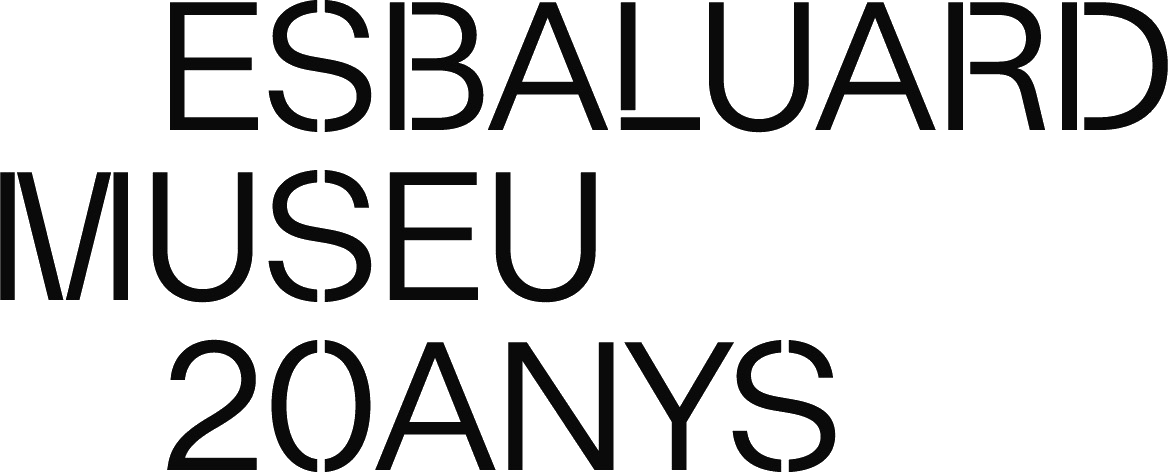This website uses cookies so that we can offer you the best possible user experience. The cookie information is stored in your browser and performs functions such as recognizing you when you return to our website or helping our team to understand which sections of the website you find most interesting and useful.
AN ART INTERVENTION BY ARTIST AVELINO SALA IN ES BALUARD REGARDING THE ‘NIT DE L’ART’

 AN ART INTERVENTION BY ARTIST AVELINO SALA IN ES BALUARD REGARDING THE 'NIT DE L'ART'
AN ART INTERVENTION BY ARTIST AVELINO SALA IN ES BALUARD REGARDING THE 'NIT DE L'ART'
S.O.S. is the title of the work Avelino Sala has made at the bastion of Sant Pere, within the Es Baluard building. It is a project of Palma Art Contemporari, association of Palma art galleries, coordinated by Es Baluard and Fernando Gómez de la Cuesta which can be seen during the Nit de l’Art (Art Night) -September 19, 2013- and subsequent days.
Avelino Sala (Gijón, Spain, 1972) is an artist, curator and editor, one of Spain's most promising artists whose work has achieved a high profile internationally in recent years. In the beginning, his work has taken momentum around his own biography, with work carried out by him. Without leaving the drawing, discipline that has mostly frequented, the sculpture in its most varied forms, and photography, Sala has been given increasingly important to video art, of central importance in his latest production. Committed to read political and social issues, his speeches and actions in the public obey this line to make the viewer think about the times in which it lives.
This installation, named S.O.S., is located at the Es Baluard entrance and is the result of the collaboration of a private project, the Nit de l’Art, sponsored by the galleries of Palma as a means of visibility and joint support between museums and the initiative by civil society, an objective in developing of the new phase of the museum.
As pointed out by the author, the work suggests how in these strange times of change and instability, when it seems that everything starts and things are not what we thought:
“Artists, if we are able to say something, we tell things as they are, and it seems that when everything falls apart, we have nothing else than build barricades, down brands and raise other worlds, other perspectives that allow us to intuit some way for hope. The Armaggedon (of culture) is approaching, and this brings us closer to the Roman ruins of the temples of the show in which they have become centers of art. The artists -these secondary characters of almost all movies- are, however, the livelihood of the entire theater conformed in this strange show of the contemporary thing, as astonishing as absurd. We can’t disappoint ourselves because we already knew that no one had invited us to the ballroom. Because we don’t know if the art of (cultural) resistance towards the hegemonic desert leads us nowhere or if it’s just another journey through the desert. Any arbitrariness has to be abandoned to focus on art as a real catalyst of critical discourse that helps to bring something, an idea that, far from being forced into radical, gets closer to the honest thing. Art can strengthen our ethical stance and make the reflection of a world that not only changes to stratospheric speeds but also does so chaotically. We do not know if we are here to fight or just to observe and give, as the minstrels, a vision of what just happened. We are staying more than ever on the Gramsci idea about building the hegemony as a process of creating truth and consensus. It is the ability of dominant groups to perpetuate their interests so that the dominated classes perceive them as common interests. It is, in his words, “active consent of the dominated”. That active consent in which we all fall, but we can try to avoid as much as possible. That way of escape can be channeled perfectly through the artwork. “Peace between peoples, class war” is a phrase that I found the other day in the neighborhood of Gracia in Barcelona. This sentence shows openly the fracture leaps and bounds is brewing in a Europe that is moving forward firmly to a sort of Central Americanization, a path to a social structure made up of an oligarchy of rich and poor masses. The middle class is doomed to extinction. The problem comes when artists do not know where we are, because artistic practice keeps grounded in the paradox”. (Avelino Sala, Palma de Mallorca, September 16, 2013).

